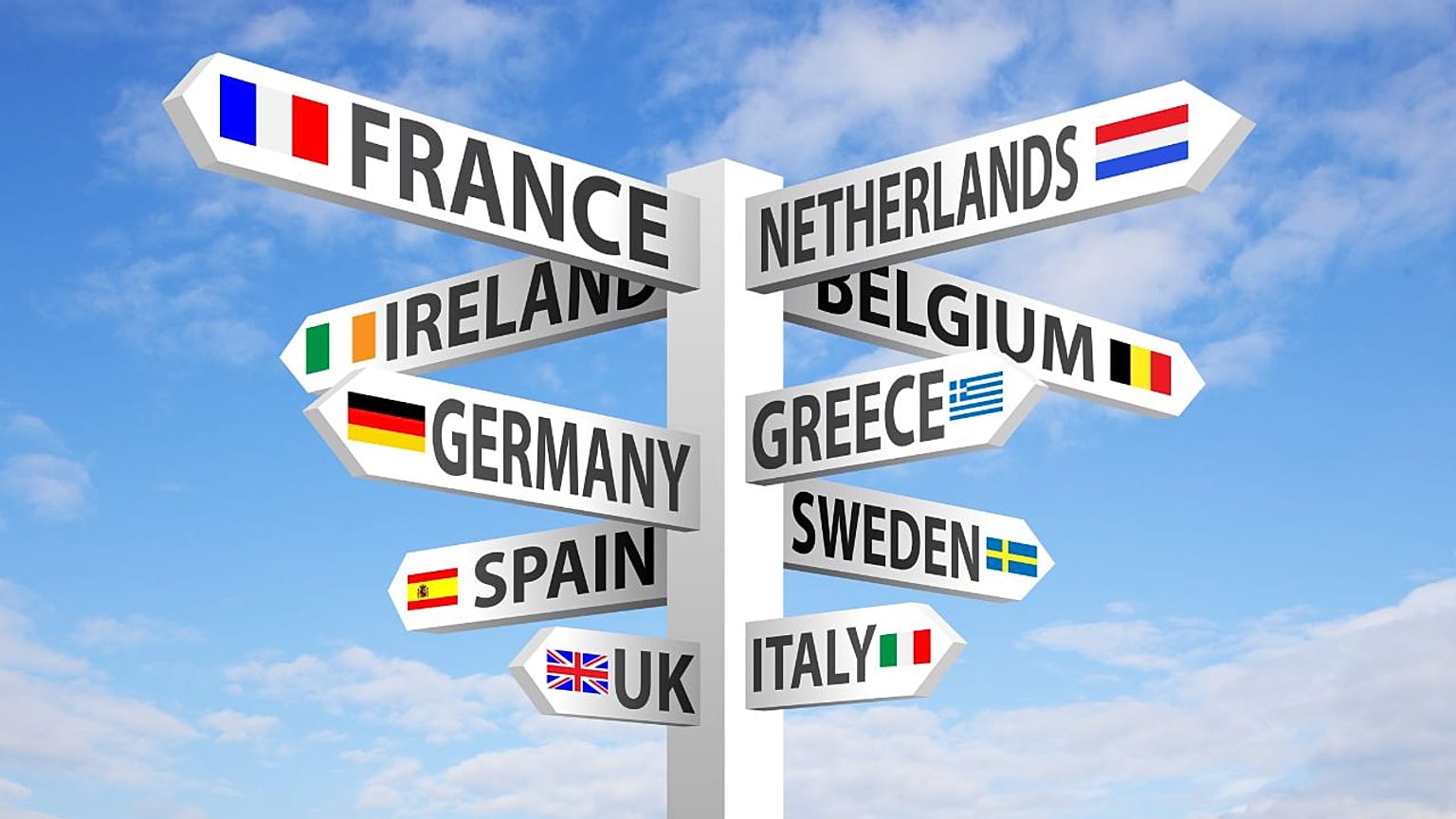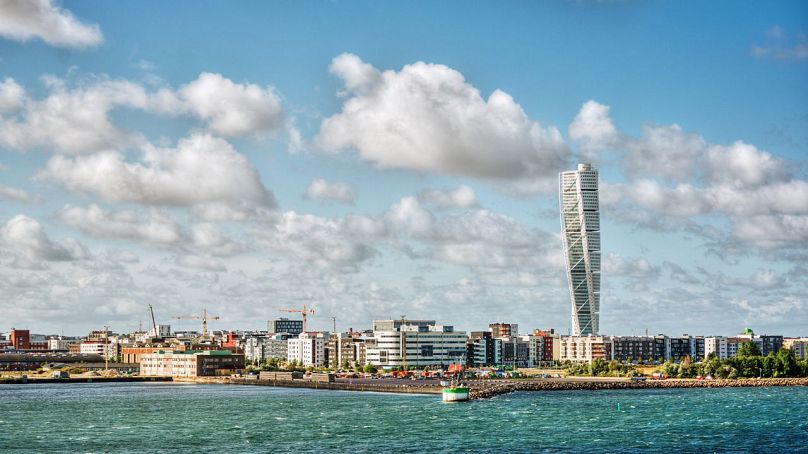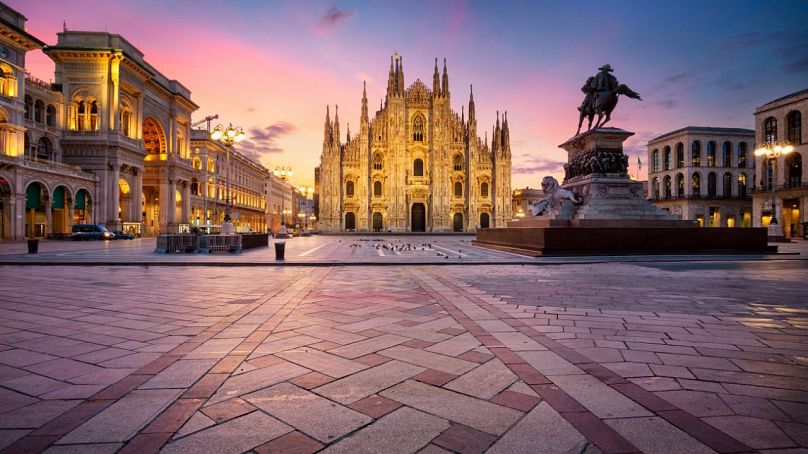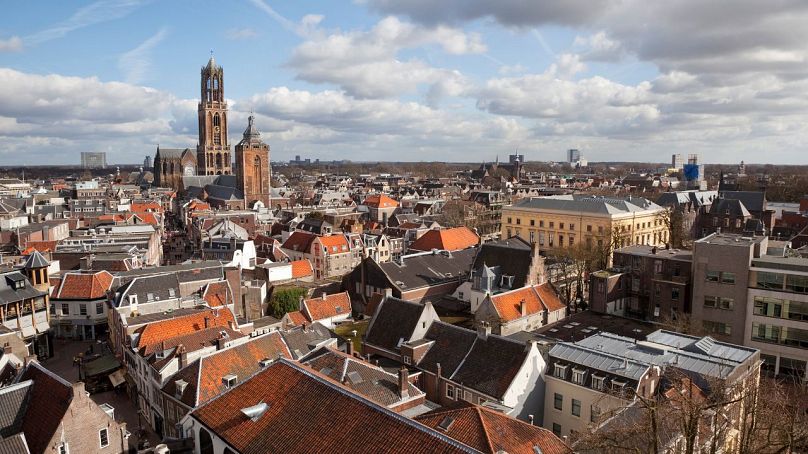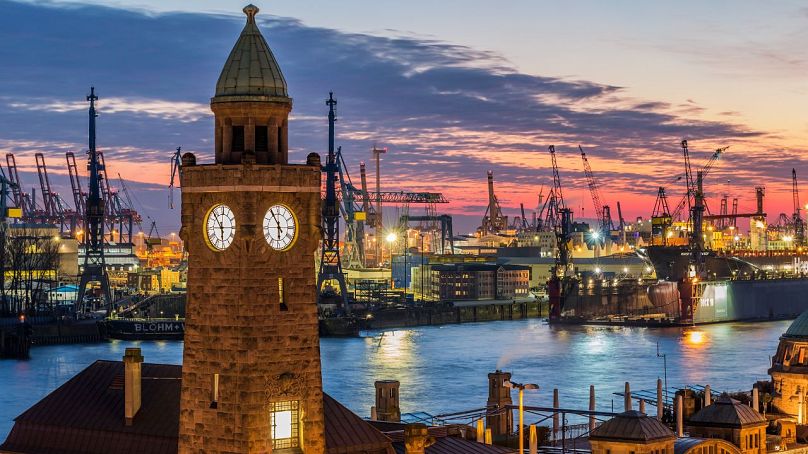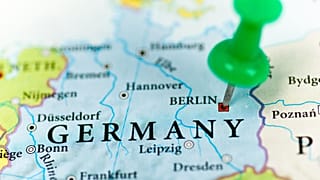By Amanda Kavanagh
 ADVERTISEMENT
ADVERTISEMENT
 ADVERTISEMENT
ADVERTISEMENT
Digital nomads are constantly on the lookout for new destinations that offer the perfect blend of affordability, quality of life, compatible time zones, and technological infrastructure.
While international workers have flocked to Lisbon in their droves in recent years – and driven up rent prices in the process – several of the programmes and initiatives that initially drew people in are also now being scaled back by Portuguese authorities. Terminating the non-habitual tax residence (NHR) is one example of this.
As such, digital nomads are looking for the next hot spot.
3 jobs in Germany to go for this week
- Lackiermeister (m/w/d), Rheinmetall Landsysteme GmbH, Fuldabrück
- Abteilungsleiter Obst & Gemüse (m/w/d), REWE Deutscher Supermarkt, Schwerin
- Account Manager (f/d/m), Leica Biosystems, Dulmen
New destinations for tech workers
New Zealand’s Trade & Enterprise, a government agency, released a report called Tech Jobs in Europe in March.
Its original goal was to provide an understanding of top and emerging tech hub markets for New Zealand exporters. The report is limited in that it was mostly compiled with secondary data sources across Europe that are more indicative than absolute.
However, the report looked at many key indicators across the continent and is useful for remote workers who are sussing out where to go next. In most European cities, internet quality is a safe bet, and time zones are compatible with European remote jobs.
That leaves quality of life and cost of living to be considered, both of which are crucial factors examined in the report.
The report’s cost of living index indicates the prices of consumer goods such as groceries, restaurants, transportation, and utilities, and these are positioned relative to New York City.
The quality of life index, which estimates the overall quality of life in a country, takes into account factors like purchasing power, pollution levels, housing affordability, safety, healthcare quality, commute times, and climate conditions.
Spain
Spain is an attractive destination for digital nomads, boasting the lowest cost of living index among the countries examined and the third-highest quality of life index, and of course, plenty of sunshine. The report profiles several Spanish cities, including Bilbao, Barcelona, Madrid, and Valencia.
Barcelona, with its vibrant start-up scene and buzzy nightlife, has long been a favourite among digital nomads. But its over-tourism has been widely and overtly criticised for many years, so expats may not receive the warmest welcome.
Valencia is increasingly catching the eye of remote workers. This coastal city offers a lower cost of living compared to Barcelona or Madrid, while still providing excellent infrastructure and a high quality of life. Valencia’s combination of beautiful beaches and rich cultural heritage makes it an ideal spot for those seeking a work-life balance.
Madrid is perfect for those who want to be at the heart of Spanish culture and lively nightlife. It also has a bustling tech scene and a Start-up Law, which aims to attract entrepreneurs and boost the tech scene by offering remote workers and freelancers outside the European Union the right to remain in Spain for an initial period of one year.
Meanwhile, Bilbao, in the north, offers a unique blend of traditional Basque culture, including amazing food, appealing to those looking for a less touristy experience.
Sweden
Sweden ranks well in both the cost of living and quality of life Indexes, making it an attractive option for digital nomads who don't mind the northern climate. The report specifically mentions Malmö and Stockholm as key cities for tech and innovation.
Stockholm is home to success stories like Spotify and Klarna, making it a hub for those working in the tech industry.
However, Malmö is catching many peoples’ eyes. Located just a short train ride from Copenhagen, Malmö offers a more affordable alternative to the Swedish capital, while still providing access to a thriving tech community and excellent quality of life.
Italy
Who hasn’t been tempted by those ads to buy a historic building in rural Italy for next to nothing?
Alas, high internet quality is not guaranteed, so the New Zealand report focuses on Milan, Turin, and Rome, which have a relatively low cost of living index and a moderate quality of life index, plus fast internet speeds.
While Rome's historic appeal is undeniable, it's Milan that's positioning itself as Italy's tech and business destination. The city's fashion and design heritage is now complemented by a growing start-up scene, with homegrown heroes like Scalapay, a payment solution provider that allows customers to buy and pay in three instalments without any additional interest.
Turin, often overlooked by tourists, is another city worth considering. It already has a reputation for innovation, particularly in the automotive sectors – think Fiat, Alfa Romeo and New Holland – and is currently undergoing a major urban and industrial aerospace redevelopment, to position itself as a strategic centre of excellence for the aerospace industry.
The Netherlands
The Netherlands stands out with its exceptionally high quality of life index, the highest among the countries examined. While the cost of living index is moderate, the overall package remains attractive for many. The report highlights Amsterdam, Utrecht, The Hague, and Rotterdam.
Amsterdam, with its picturesque canals and liberal attitude, has long been a favourite for tech workers. However, as housing prices in the capital continue to soar, other Dutch cities are gaining attention.
Utrecht, with its large student population and central location, offers a more laid-back alternative. While The Hague, known for its international organisations and beautiful beaches, appeals to those working in fields related to law, policy, or international relations.
Rotterdam, with its famous port and a plan to become the biggest green hydrogen hub in Europe, is becoming increasingly popular due to its founder-led communities, a high volume of start-ups, incubators, and plentiful coworking spaces.
Germany
Germany offers a good balance between cost of living and quality of life, making it an attractive option for many digital nomads. The report focuses on Hamburg, Berlin, and Munich as key cities.
Berlin has been a digital nomad hotspot for years, known for its affordable living costs, plus its vibrant arts and techno scene. However, as Berlin becomes more popular and consequently more expensive, other German cities are coming into focus.
Hamburg, with its maritime heritage, offers a different flavour of German city life and is home to carbon-neutral energy systems provider and unicorn 1KOMMA5°, as well as a number of progressive and high-profile tech players in biotech, health tech and fintech.
3 more jobs to apply for this week
- Senior Project Manager (m/f/d), Cytiva, Darmstadt
- Regional Sales Manager Germany Central (f/m/d), Beckman Coulter, Diagnostics Frankfurt
- Frontend Developer, Jobbio, Dublin / Remote
Munich, while more expensive, compensates with its high quality of life, proximity to the Alps, and strong job market. Munich's reputation as a leader in engineering is currently changing to focus more on software engineering, and 11 per cent of Germany’s total start-ups are located here.
